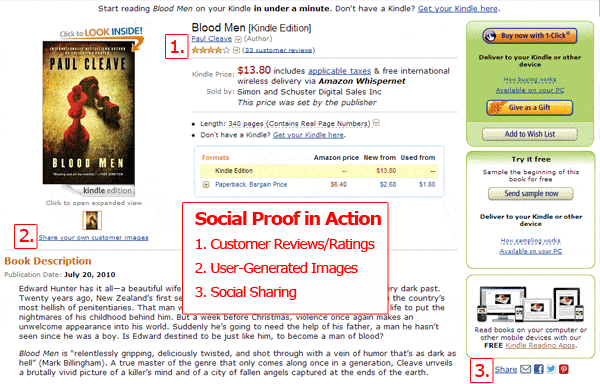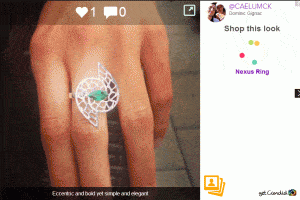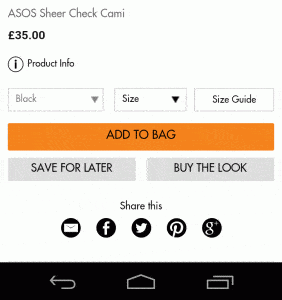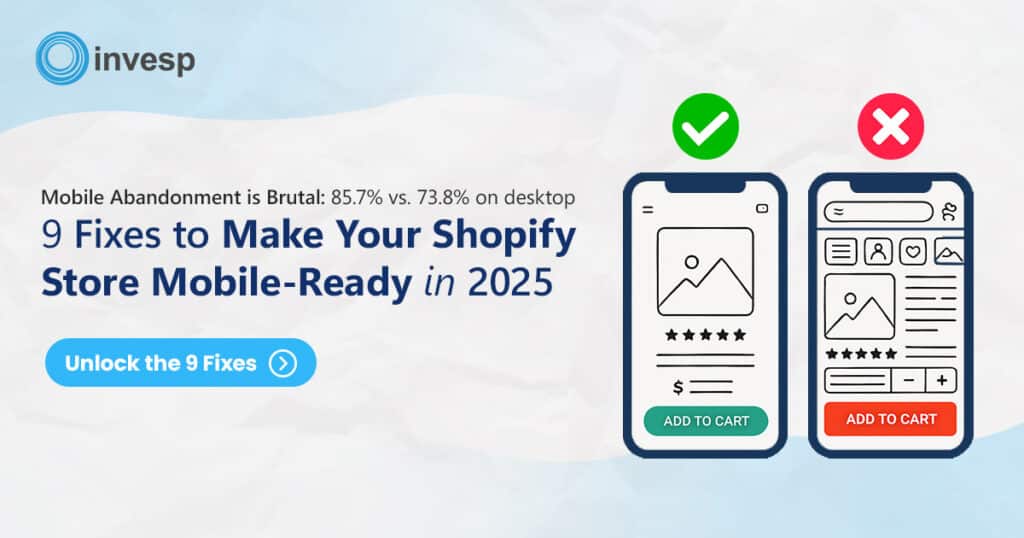If you have ever visited a tradeshow, you probably experienced a very clear example of the effect of social proof. Think back to the time you spent strolling the trade show floor, not with any particular booth destination in mind, but just looking to see what’s what.
Which booths caught your attention? Chances are you were drawn to those that had visitors and avoided those where the booth representative stood alone.
Yes?
The thing that attracts you to the busy booths, or crowded stores at the mall, is the social proof demonstrated by the mass of people.
According to Wikipedia, social proof is:
“a psychological phenomenon where people assume the actions of others in an attempt to reflect correct behavior for a given situation. This effect is prominent in ambiguous social situations where people are unable to determine the appropriate mode of behavior, and is driven by the assumption that surrounding people possess more knowledge about the situation.”
(emphasis is the author’s)
When you were just looking around the trade show floor, you didn’t know which booths were worthy of a visit. You assumed that the people visiting the busier booths must know something you didn’t, and you were drawn to those booths.
Now Think About Your Ecommerce Customers
They ‘stroll’ across the web looking to make a purchase. Sometimes they know exactly what they want and where to get it. But most often they are unsure what to buy, where to buy it and sometimes even why they want it.
Take for example digital cameras. Shoppers face an incredibly wide range of choices and options online. How are they to know which model is best suited to their needs? Which site offers the best value? And does the average shopper really need a 15 mega pixel camera and a 50X optical zoom?
More and more studies show that online shoppers depend on social proof to guide them in making a purchase.
- 70% of shoppers consult online reviews and ratings before making a purchase (BusinessWeek)
- 63% say they are more likely to buy from a site that has product ratings and reviews (Search Engine Journal)
- 71% of consumers are more likely to make a purchase based on social media referrals (Invesp)
- Online reviews are the most popular user-generated content (Forrester)
- Reviews generate 21% higher purchase satisfaction and 18% higher loyalty (PowerReviews)
It is undeniable that social proof works to generate traffic, conversions and sales.
How to Improve Your Social Proof Marketing
Compared to trade show booths, the problem facing ecommerce sites is that it’s impossible to show new visitors the crowd of shoppers on the site. But using the tools of social proof marketing tools will get the point across:
1. Customer Reviews and Ratings – the numbers outlined above prove the power of using reviews and ratings. If you want more proof, look around at the major online retailers. You’ll search for a long time to find one that does not have some form of customer reviews and or ratings.
Many ecommerce sites hesitate to use customer ratings for fear of getting too many negative responses. But fear not, 75% of reviews are positive. (PowerReviews)
And negative reviews carry two major benefits. First, they add authenticity to the positive reviews (no company gets 100% positive reviews, so customers will tend to dismiss those that claim to do so). Second, they give you the opportunity to address customer concerns and demonstrate a high level of engagement and customer service.
2. Testimonials – Sometimes forgotten in the tide of newer technology, testimonials are no less valuable than in the days when they were just about the only social proof tool in the shed. If you’ve ever received a thank you note or compliment over the phone, get permission to use it on your site. While ratings put a numeric value on your company and products, testimonials give them a story.
3. Images and Videos – We all like pretty pictures and, to meet demand, the web becomes more visual every day. Five years ago there was no Pinterest, Instagram or Snapchat. And Youtube is the second largest search engine on the web.
Your testimonials are more likely to be believed when accompanied by a corresponding picture, especially when it’s from a recognized brand advocate. (KISSmetrics)
With the ascendency of image-based sites, customer-generated images and videos have been one of the biggest social proof trends of the past couple of years.
According to visual commerce platform developer GetCandid.com, people who look at user-generated photos are five times more likely to buy online than those who don’t.
Conversion-optimized social proof: GetCandid.com takes social proof to a higher level by letting ecommerce sites to create galleries of ‘shoppable’ customer-generated images. That means not only will your customers be able to see lots of images from other shoppers just like them, but each image carries its own call-to-action button that means viewers are just one click away from buying what they see in the picture.

4. Social Sharing – Social media marketing has its fans and detractors, but, regardless of your opinion, there’s very likely a conversation about your products, brand or something very close to them going on right now on social media. While you may not want to pursue an active social marketing campaign, the numbers show that it’s folly to not let your customers share your content and products to their social networks or let them login to your site with their social accounts.
- 65% of adult internet users have an account on at least one social network
- 40% of consumers prefer using a social login over setting-up a new account or using a guest account
- 68% of consumers use social sites to read product reviews
- 50% use social networks to provide product feedback
- 131% more time is spent on your site by consumers can comment and share using their social accounts
(monetate)

The Bottom Line: Social proof works. On the trade show floor and for ecommerce.
- It fosters powerful word-of-mouth advertising
- It’s an endless supply of content (“Content marketing is the only marketing left.” Seth Godin)
- It adds credibility. How? Just ask yourself: what’s my impression of a site that has no testimonials, social sharing icons or customer reviews?
- It improves you site’s user experience (UX) – we all want to know what our friends and neighbors are doing
- And social proof shows your customers that you are focused on them



